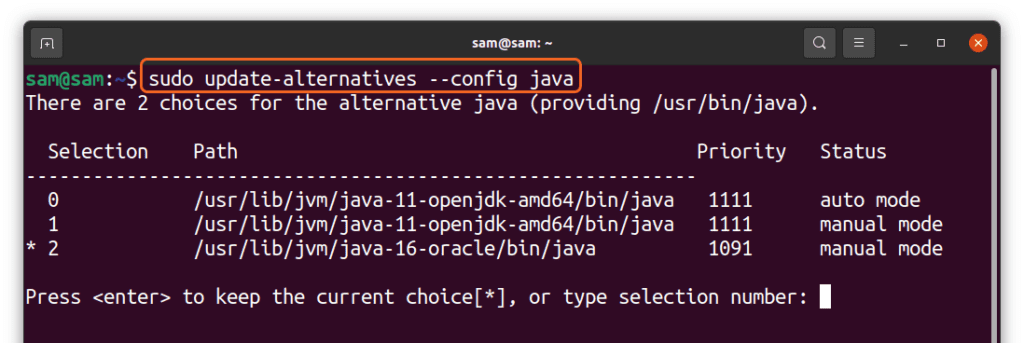

ĭrwxr-xr-x 8 stephanecodes stephanecodes 4096 jan. Install every java version in /opt/java/, for example ~$ ll /opt/java/ĭrwxr-xr-x 6 root root 4096 jan. I use update-alternatives this way, using a java_home alternative instead : Installation Most of the time, when I change my java version, I also want to use the same javac version. Is there a way to confirm that what I have done is correct? So which number should I select to have sun-java as the default runtime?Īlso, what exactly do th auto and manual modes mean? If I select 3 above and run the update-alternative command I receive the same output as above, again nothing seems to have changed except that the * is now in front of the 3, though it still reads manual mode. Press enter to keep the current choice, or type selection number: * 0 /usr/lib/jvm/java-6-openjdk/jre/bin/java 1061 auto modeĢ /usr/lib/jvm/java-6-openjdk/jre/bin/java 1061 manual modeģ /usr/lib/jvm/java-6-sun/jre/bin/java 63 manual mode Yet when I run this command I get: There are 3 choices for the alternative java (providing /usr/bin/java).

Then am told that I should use the command sudo update-alternatives -config java to make sure that a particular java (sun-java) is the default runtime. I have been instructed to install sun-java jdk 1st. I am installing Apache Solr on Linux Debian (Squeeze).


 0 kommentar(er)
0 kommentar(er)
